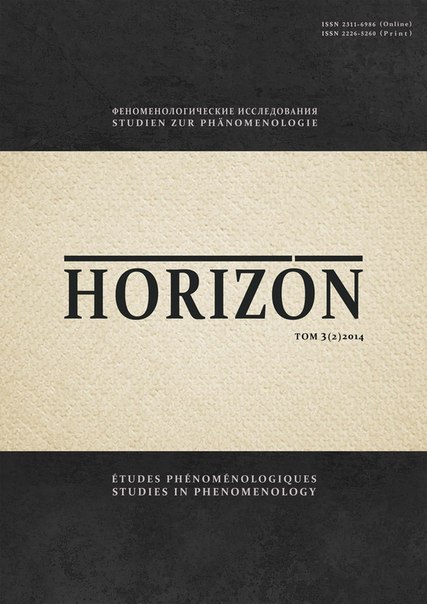DE LA CHAIR À LA RÉVOLTE: L’ACTIVITÉ PASSIVE DANS
L’IDIOT DE LA FAMILLE
FROM FLESH TO REVOLT: THE PASSIVЕ ACTIVITY IN THE FAMILY IDIOT
Author(s): Annabelle DufourcqSubject(s): Phenomenology
Published by: Издательство Санкт-Петербургского государственного университета
Keywords: existentialism; ethics; politics; flesh; activity; passivity; praxis; revolution; Flaubert; Sartre;
Summary/Abstract: This article exposes a tension within Sartre’s Philosophy and his concept of praxis in relation with the role to be played by the flesh and the dimension of passivity. Our guideline will be the theory of passive activity that Sartre develops in The Family Idiot.We will wonder how action may emerge at the heart of a flesh that is inseparable from a familial and social milieu whose power of conditioning is so profound that Sartre calls it a destiny. Is the specific form taken by praxis in Flaubert’s existence – namely a passive activity – to be regarded as a weakened form of praxis? Should we contrast passive activity and sheer praxis? Secondary and primary praxis? Parasitism and revolt? We will first show in this article, by studying Sartre’s analyses regarding the flesh in Being and Nothingness and in The Family Idiot, that the capacity for action cannot be reduced to a metaphysical nothingness:the temporal ekstasis that defines every existent becomes a capacity for praxis only from within the flesh, a flesh that is still prior to the separation between the mother and the child. According to Sartre, a process of polarization and attunement, the institution of rhythms and dynamisms then give birth to a subject capable either of outright praxis or, as in Flaubert’s case, only of passive praxis. The discovery of an essential link between praxis and fleshly dynamism will lead us, secondly, to question the role that passivity may always play in activity and to reappraise passive activity. In this regard Sartre’s reflections develop along two different directions and pose a problem. On the one hand, Sartre makes clearly known his disagreement with Flaubert’s thesis that praxis is impossible and revolt useless. On the other hand, he demonstrates that Flaubert invented a passive activity that possesses a genuine power of subversion. We will contend that the tendency to apprehend passive and active activities in terms of dualism and hierarchy is to be overcome. There must be an essential continuity between them, to such an extent that passive activity is the key for all revolution.
Journal: Horizon. Феноменологические исследования
- Issue Year: 3/2014
- Issue No: 2
- Page Range: 55-70
- Page Count: 16
- Language: French

